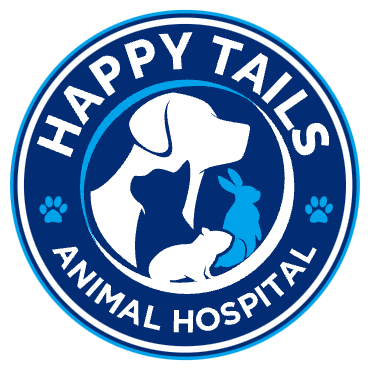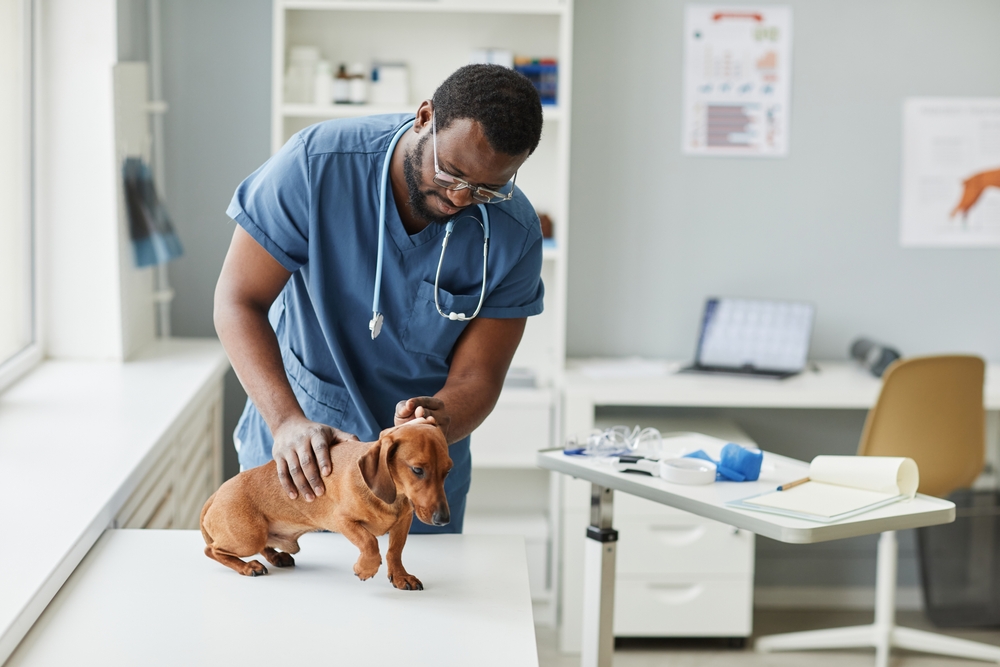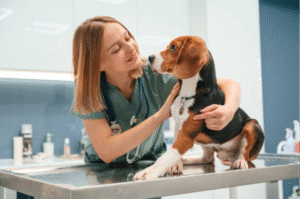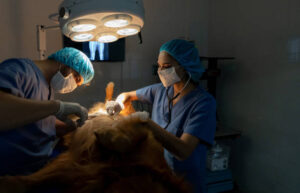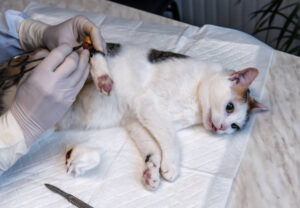In the serene surroundings of Renton, WA, where dogs joyfully roam and play, a silent emergency lurks—Gastric Dilatation-Volvulus (GDV), commonly known as bloat. This life-threatening condition can strike without warning, leaving pet owners in a race against time. Dr. Arshdeep Mann of Happy Tails Animal Hospital is at the forefront of combating this emergency, offering critical insights into recognizing the signs of GDV and the immediate steps to take.
Understanding GDV: More Than Just Bloat
GDV occurs when a dog’s stomach fills with gas and then twists, cutting off blood flow to the stomach and sometimes the spleen. Without prompt treatment, GDV can lead to shock, organ failure, and, if not addressed quickly, death.
Recognizing the Signs of GDV
Early detection is crucial in managing GDV. Symptoms may include:
- Extreme restlessness or distress
- Swollen or hard abdomen
- Attempting to vomit with little to no output
- Rapid breathing
- Pale gums and drooling
Immediate Actions: What to Do if You Suspect GDV
If you observe any signs of GDV in your dog, it’s vital to act swiftly:
- Do Not Delay: Contact Happy Tails Animal Hospital or the nearest emergency veterinary service immediately.
- Minimize Stress: Keep your dog calm and still; excessive movement can worsen the condition.
- Prepare for Transport: Gently transport your dog to the veterinary clinic, ensuring they’re comfortable and supported.
Expert Intervention at Happy Tails
Upon arrival, Dr. Mann and his team are equipped to diagnose and treat GDV with the urgency it demands. Treatment typically involves:
- Stabilization: Fluid therapy and medications to manage shock and heart function.
- Decompression: Relieving gas and pressure from the stomach.
- Surgery: Correcting the stomach’s position and securing it to prevent future episodes.
Preventive Measures: Safeguarding Your Dog
While GDV can occur in any dog, certain factors increase the risk. Dr. Mann advises on preventive strategies, including:
- Feeding Practices: Avoid large meals and opt for smaller, more frequent feedings.
- Diet Consideration: Careful selection of diet to prevent excessive gas accumulation.
- Post-Meal Activity: Limiting vigorous exercise before and after meals.
The Role of Education and Awareness
Dr. Mann emphasizes the importance of education in preventing GDV. Understanding the risks, recognizing the early signs, and knowing how to respond can save lives. Happy Tails Animal Hospital is committed to providing resources and guidance to protect your beloved pets.
Dr. Arshdeep Mann and the team at Happy Tails Animal Hospital are dedicated to the health and well-being of your pets. Recognizing the signs of GDV and understanding how to respond can be the difference between life and death. For more information on GDV or to consult about the best preventive practices for your dog, contact Happy Tails Animal Hospital at 425-254-2779. Together, we can ensure your canine companions a happy, healthy life.
Sources:
- Journal of Veterinary Emergency and Critical Care: Offers in-depth studies on GDV, including risk factors, treatment options, and outcomes.
- American Veterinary Medical Association (AVMA): Provides educational resources on GDV, aimed at raising awareness among pet owners.
- Veterinary Clinics of North America: Small Animal Practice: Features articles by veterinary experts on best practices for preventing and managing GDV in dogs.
